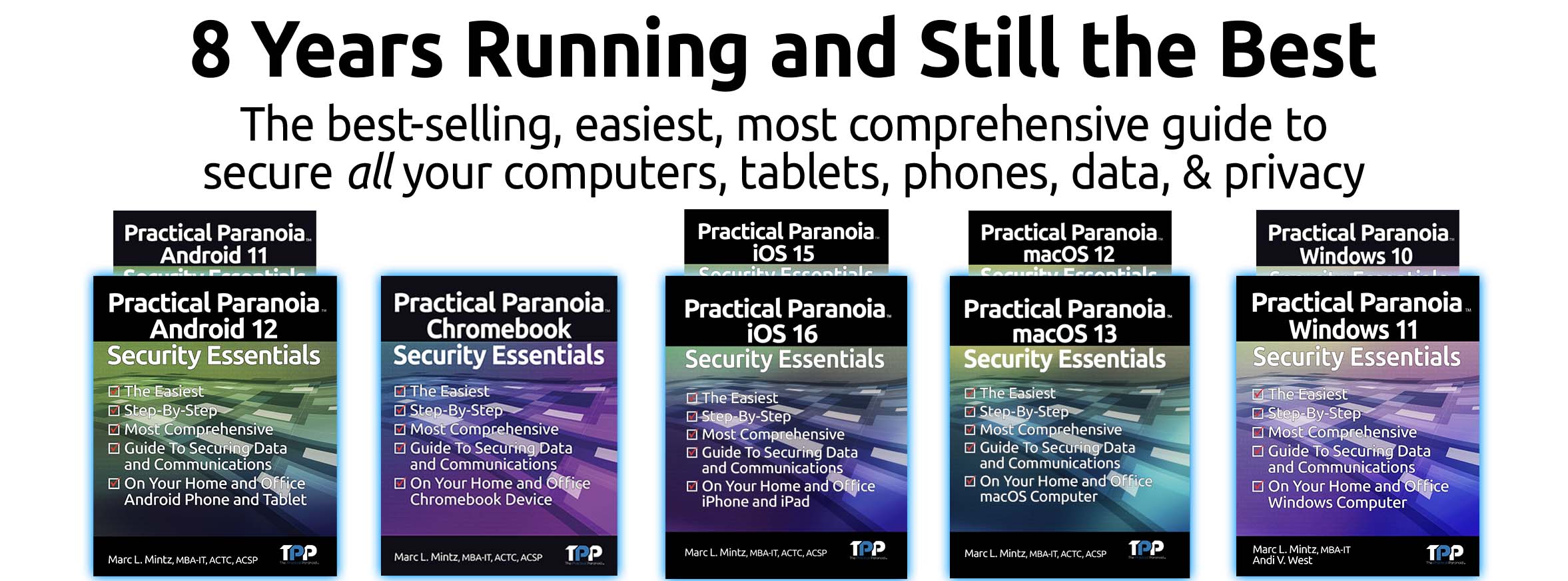As reported in the August 25, 2022 edition of AppleInsider (https://appleinsider.com/articles/22/08/25/google-tracks-39-types-of-personal-data-apple-tracks-12), of the five major Big Tech firms, Google tracks more personal data than any other, and Apple tracks the least.
Google was found to track 39 data points per user, Twitter tracks 24, Amazon 23, Facebook 14, and Apple 12. According to the report, Apple tracks only data that is required to maintain the user account.
Unfortunately, there is no documentation on what data points are tracked.
WHY DO YOU CARE?
Perhaps you don’t care. But if you do, this information is important so that you can make fit decisions and choices for how you use your computer, software, and internet.
WHAT CAN YOU DO?
Although I’ve written 18 books on what you can do about personal data tracking, I’m also not foolish enough to think everyone will rush out and buy an armful of them (but please do). There are some simple steps anyone can take to stem the hemorrhaging of your data into government and advertiser servers:
- Use a privacy-centered browser. These include: Safari, Brave, and Firefox. All free.
- Use a quality VPN (Virtual Private Network) anytime you are online. My personal choice is NordVPN.
- Use a unique and strong password (15 or more characters) for every website and service.
- Use a quality Password Manager to store your overflowing list of unique and strong passwords. My personal favorite is Bitwarden. $10/year.
- Enable 2-Factor Authentication (also called Multi-Factor Authentication or One Time Use Password) for every site and service that provides for it. Then use Bitwarden to generate your 2-Factor Authentication codes.
- Use end-to-end encrypted text, phone, and video conference. My personal choice is Signal. Free.
- Use a quality anti-malware utility. My personal choice is Bitdefender.
- Only download software from legitimate sources. This is usually restricted to either the developer or the Apple Store, Google Play Store, or Microsoft Store.
- Verify at least weekly that your operating system and applications are current.
- Review your security and privacy settings for each of your social media platforms.
WANT TO BE PROTECTED LIKE THE PROFESSIONALS?
Practical Paranoia Security Essentials books have been the best-selling, easiest, and most comprehensive DIY guides for Android, ChromeOS, iOS, macOS, and Windows for nine years. Written by cybersecurity and internet privacy professionals for new and non-technical users, the reader is taken through an illustrated step by step process to secure their data in the same way the government secures their systems. We’ve made it so easy that anyone can confidently do it!




